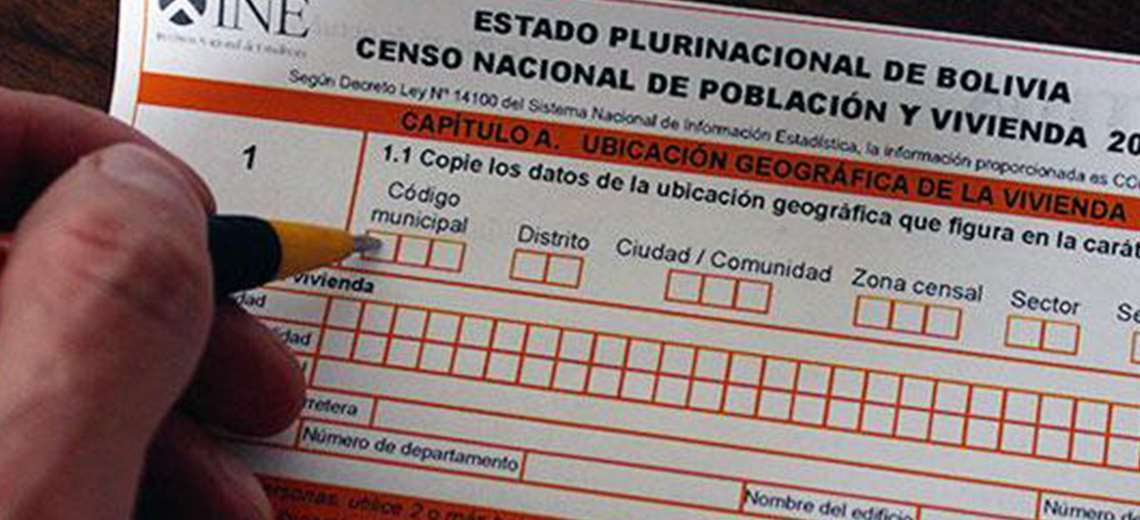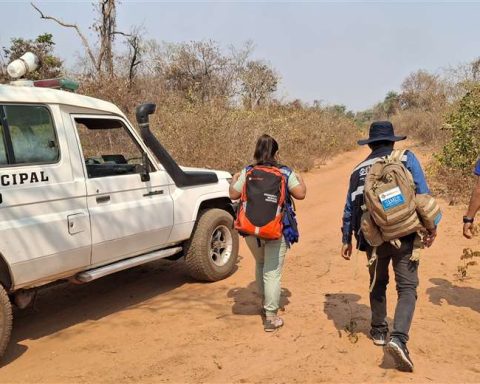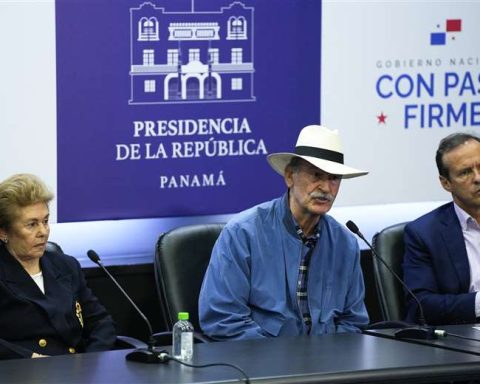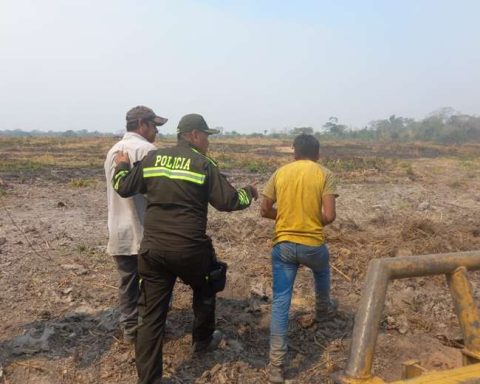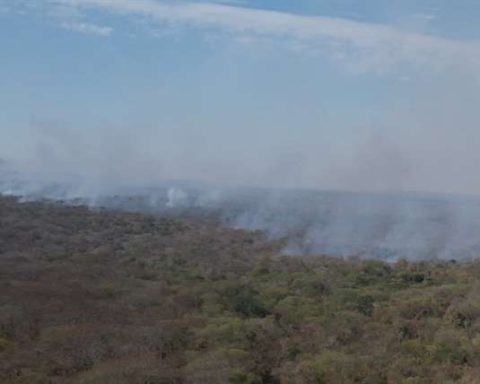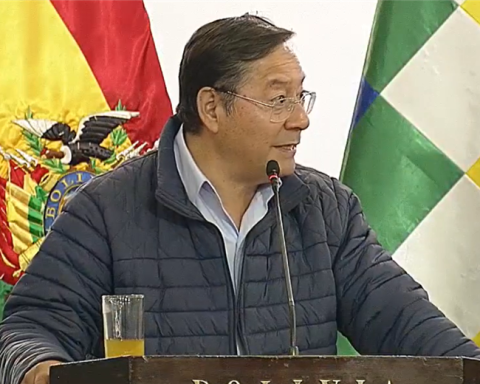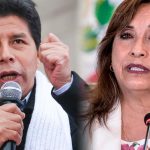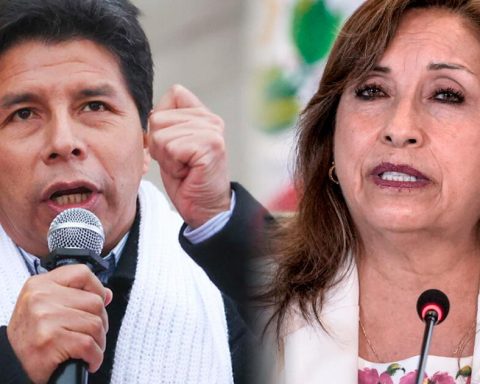The census ballot will include questions on new topics such as access to technology and the impact of Covid-19. Although international standards recommend not to vary “too much” the content of the questionnaire in relation to the last census, these aspects in the last 10 years have become more relevant.
In this sense, the National Institute of Statistics (INE) decided to incorporate these questions in coordination with the Ministry of Health and in accordance with the recommendations of the United Nations.
In the case of questions about the coronavirus, it is expected obtain data regarding the effects of the pandemic and mortality statistics.
Regarding technology, the director of the INE, Humberto Arnadi, explained to EL DEBER that this consultation responds to the need of the population to access internet services and the use of mobile devices, computers and others.
“We thought to introduce questions of access to information technologies and the availability of computers or other means to be able to access them and the quality of the existing services”, he clarified.
Gender identity
In March, the INE confirmed to this medium that the gender identity query will not be included in the census questionnaire in consensus with the groups LGBTQ+.
The registry will be administrative and will be in charge of the Ombudsman’s Office and the Ministry of Justice to carry out a survey of data on this population. This survey will be postcensal.
“What is required is an administrative record since there may be difficulties when asking specific questions within the census ballot, for which both the The Ombudsman’s Office and the Ministry of Justice promote the realization of this administrative registry of a voluntary natureArandia explained.
Bolivia made this determination unlike Argentina, a country that in its census form this year adds questions such as: What is your recorded sex at birth? and the answers can be Female/Female, Male/Male, or None of the above.
Also in query number 3 it states: “According to gender identity, is it considered…” and shows the options of: woman, trans woman/transvestite, male, trans male, trans masculinity, non-binary, other identity/none of the above, I prefer not to answer or ignored?
According to sociologist and political analyst Franco Gamboa, these questions should be included on the ballot because gender should not be “closed” in feminine and masculine.
“There are other categories that deserve to be visualized by the expression of free rights and is restricting our right to an identity“, he emphasized.
Religion
The Catholic and Evangelical Churches have expressed concern about the initial rejection of the INE to include the question about what religion do Bolivians practice.
A month ago, the director of the INE said that adding a question about religion was unconstitutional since Bolivia is a secular stateratified in the Political Constitution.
Given this fact, the evangelicals announced protests and lThey called on their followers not to participate in the census on November 16. Then the Catholics called the INE to agree.
On Wednesday, the Deputy Minister of Planning, Marcelo Laura, reported that, through a commission, they are evaluating convening religious organizations with the aim of dealing with the ballot issue. Aradia stated that the Ministry of Foreign Affairs handles that task.
The census questionnaire is 85% complete. The presidential spokesman, Jorge Richter, assured that the population will know the content and themes of the ballot in May, although he did not give a precise date.
The census ballot will include questions on new topics such as access to technology and the impact of Covid-19. Although international standards recommend not to vary “too much” the content of the questionnaire in relation to the last census, these aspects in the last 10 years have become more relevant.
In this sense, the National Institute of Statistics (INE) decided to incorporate these questions in coordination with the Ministry of Health and in accordance with the recommendations of the United Nations.
In the case of questions about the coronavirus, it is expected obtain data regarding the effects of the pandemic and mortality statistics.
Regarding technology, the director of the INE, Humberto Arnadi, explained to EL DEBER that this consultation responds to the need of the population to access internet services and the use of mobile devices, computers and others.
“We thought to introduce questions of access to information technologies and the availability of computers or other means to be able to access them and the quality of the existing services”, he clarified.
Gender identity
In March, the INE confirmed to this medium that the gender identity query will not be included in the census questionnaire in consensus with the groups LGBTQ+.
The registry will be administrative and will be in charge of the Ombudsman’s Office and the Ministry of Justice to carry out a survey of data on this population. This survey will be postcensal.
“What is required is an administrative record since there may be difficulties when asking specific questions within the census ballot, for which both the The Ombudsman’s Office and the Ministry of Justice promote the realization of this administrative registry of a voluntary natureArandia explained.
Bolivia made this determination unlike Argentina, a country that in its census form this year adds questions such as: What is your recorded sex at birth? and the answers can be Female/Female, Male/Male, or None of the above.
Also in query number 3 it states: “According to gender identity, is it considered…” and shows the options of: woman, trans woman/transvestite, male, trans male, trans masculinity, non-binary, other identity/none of the above, I prefer not to answer or ignored?
According to sociologist and political analyst Franco Gamboa, these questions should be included on the ballot because gender should not be “closed” in feminine and masculine.
“There are other categories that deserve to be visualized by the expression of free rights and is restricting our right to an identity“, he emphasized.
Religion
The Catholic and Evangelical Churches have expressed concern about the initial rejection of the INE to include the question about what religion do Bolivians practice.
A month ago, the director of the INE said that adding a question about religion was unconstitutional since Bolivia is a secular stateratified in the Political Constitution.
Given this fact, the evangelicals announced protests and lThey called on their followers not to participate in the census on November 16. Then the Catholics called the INE to agree.
On Wednesday, the Deputy Minister of Planning, Marcelo Laura, reported that, through a commission, they are evaluating convening religious organizations with the aim of dealing with the ballot issue. Aradia stated that the Ministry of Foreign Affairs handles that task.
The census questionnaire is 85% complete. The presidential spokesman, Jorge Richter, assured that the population will know the content and themes of the ballot in May, although he did not give a precise date.
;
